

The InvestmentNews 2023 Women to Watch Awards celebrate excellence and the women who are making a difference in our industry.
On Tuesday, Nov. 7, at Tribeca 360 in New York City, top advisors, rising stars and leaders shaping the wealth management space will come together to recognize each other’s talents and contributions. This year’s Women to Watch Awards feature a new independent judging panel and exciting award categories for organizations and professionals alike.
As part of this Women to Watch issue, InvestmentNews is proud to profile each excellence awardee in the individual categories. The winner in each category will be announced at the event.
Here are the excellence awardees in the Portfolio Manager of the Year category:
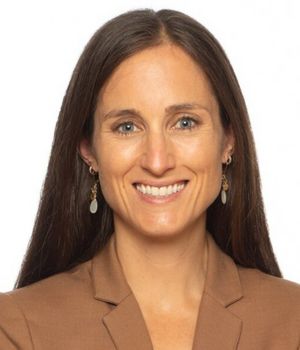
Portfolio manager, Impax Asset Management
From a young age, Christine Cappabianca embraced computer programming. In college, she was turned on to volunteering to meet social needs.
Cappabianca attended Harvard University to major in computer science, but along the way, she discovered her passion for social service at a residential house on campus. She wound up getting an economics degree, focusing on the economics of poverty.
She spent her first two years after graduation working with the elderly homeless in greater Boston. She then became a quantitative analyst for an asset manager. She found a way to meld her callings when environmental, social and governance datasets became widely available in the late 2000s.
“I said, I want to be the one who analyzes this data,” she said. “The only way I can justify my existence is to do good through investing.”
Cappabianca is now a portfolio manager and vice president for systemic strategies at Impax Asset Management. She recently led research that found gender diversity and equity have a positive financial effect on companies.
“It did add alpha,” Cappabianca said. “Gender was able to stand alone as a value driver. Creating a culture that is supportive of gender diversity and broader diversity results in companies that outperform.”
— Mark Schoeff Jr.
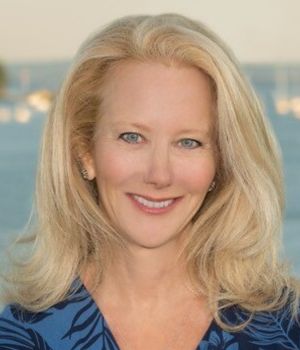
Founder and CEO, CAIM
Catherine Avery was working in Morgan Stanley’s office at the World Trade Center on 9/11, and a morning errand run may have saved her life.
“That changed a lot for me. I truly loved my work, and I had a 5-month-old baby at home,” she said. The reminder that life is unpredictable and fragile “was a real eye-opener” that altered her career path in a way that allowed more flexibility for family, she said.
Avery left her job as a vice president at Morgan Stanley in 2003 and bounced around a couple of companies before starting her own investment management firm, CAIM, in 2007.
Although she fell in love with the business at 18, working part-time at Oppenheimer Funds while going to school at New York University, the path to managing a fund wasn’t easy. Even now, only about one in 20 funds is led by a woman.
That aside, “from the asset management side, there are only a few slots available. They don’t just make these jobs,” Avery said. “You often have to wait for someone to leave.”
She did get her chance — and she’s managed mutual funds and separate accounts across equity income, natural resources, commodities and real estate investment trusts. “After waiting all those years to get a fund to manage, I realized I really enjoyed managing money for individuals,” she said.
The collaboration among portfolio managers, advisors and clients is a draw, as “you really get to see the fruits of your work and how they benefit the end client,” Avery said.
— Emile Hallez
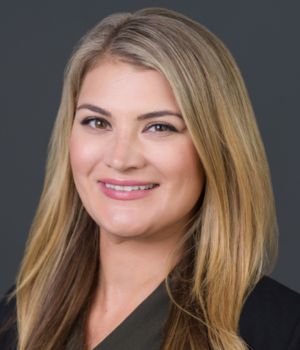
Wealth management advisor and partner, Weatherly Asset Management
Kelli Burger started on the front desk at Weatherly Asset Management in 2011 and became a partner in 2018, a quick career trajectory that she attributes in part to great mentors.
“The key was having access to the team at Weatherly,” Burger said. “There weren’t a lot of barriers. It was great to have female mentors. I was able to learn from people in a variety of roles.”
The Weatherly team supported her in getting a certified financial planner designation. As her knowledge and skills grew, she moved up the ladder.
“It was a combination of education, mentorship and hard work on my part,” Burger said.
The boost that she received from mentors is one she tries to pay back by serving as a mentor herself for firm staff and for other women in San Diego through professional networks.
Her roles at Weatherly include onboarding clients from strategic referral channels, working with clients on retirement planning, serving on the firm’s investment committee — where she provides recommendations to build tax- and fee-efficient portfolios — and developing marketing initiatives.
Each client is unique and, therefore, each portfolio is customized. Needs, goals and risk tolerance must all be calibrated based on the granular knowledge of a client’s life that Burger gathers. It’s a dynamic environment in which she thrives.
“The relationship-building with clients is what I love about the job and find really fulfilling,” she said.
— Mark Schoeff Jr.
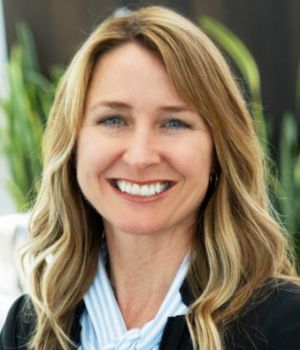
Senior wealth advisor, Carson Wealth
Using her earnings from waitressing and babysitting, Rebecca Albers started buying stock when she was 16.
Her father’s encouragement led her to that — and she was soon quite glad. Her investments paid off in more ways than one.
“I was able to pay for a semester of college, and it piqued my interest,” she said of the returns she saw on her stocks.
And that set her on a career path. But Albers didn’t get into portfolio management right away — her first 14 years after college were at Wells Fargo, where she worked in mortgage origination. That role helped her “understand the full size of the balance sheet,” both assets and liabilities, she said.
Nonetheless, she enrolled in a stock analysis program, which she did along with her father. She did some trading on her own for a couple of years but realized she had a skill that could benefit others.
When she saw an opening for a financial advisor in Wells Fargo’s private client group, “I realized, gosh, I could help others a lot by doing this,” Albers said.
She followed up her stock training with CFP and chartered market technician designations.
Carson Wealth gave her an opportunity to do even more, Albers said.
“One of the key questions that was coming up with my clients was tax-related, and Carson had a lot of great tools around tax planning,” she said.
What motivates her?
“My faith definitely drives me, and keeping in mind who I work for. I wake with gratitude that I’m in the line of work I’m in,” Albers said. “I enjoy helping clients.”
— Emile Hallez
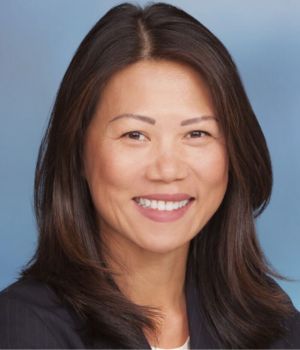
Executive vice president and head of portfolio management, Fiduciary Trust International
In her 27 years at Fiduciary Trust International, Carin Pai has made an indelible mark, building the firm’s investment associate program and mentoring the next generation of portfolio managers.
“In anybody’s career, there are people who motivate you and help you along the way,” said Pai, whose mentor in her early years at Fiduciary Trust was the late Jeremy Biggs, the firm’s chief investment officer. “He was willing to teach. I felt like he noticed when people worked hard, and he gave the time to people who had the interest.”
Today, as the company’s head of portfolio management, Pai oversees a team of about 80 who manage a total of roughly $34 billion.
“I’ve been here for as long as I have because I love what I do,” she said.
She appreciates the combination of the quantitative and relationship aspects of portfolio management in the wealth business.
“Very few jobs give you that. My job’s never boring,” she said.
Pai got a taste for portfolio management — and proved her mettle — in the ‘90s, starting with an internship at Prudential Securities that turned into a full-time job.
“The ’90s was such an exciting time in the stock market. It was the rise of what turned out to be the dot-com bubble. It was super energizing, and in a way, it was also super glamorous to be in the investment world,” she said. But “to be a female in the business in the ’90s — it was not easy.”
Recognition was hard-earned, and there were few women in her peer group. That’s part of the reason Pai supports women who are just starting out in their careers.
— Emile Hallez
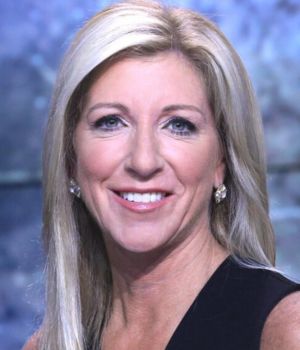
Chief investment strategist and portfolio manager, Hightower
One of Stephanie Link’s first inspirations was a next-door neighbor, a woman who worked in bond sales — a field dominated by men.
Much later, Link would find a mentor in Jim Cramer, serve as head of global equities research at Nuveen, co-managing more than $200 billion in assets, and most recently become chief investment strategist at Hightower.
Now a mentor herself, her advice to young women she coaches is “come in early, leave late, work harder than anyone, under-promise, overdeliver and exploit your strengths.”
She’s been there. Link started her career on the sales floor at brokerage Dean Witter Reynolds, which in 1997 merged with Morgan Stanley. Her next job was at Prudential Equity Group, where she was managing director of institutional sales for 10 years.
Before she went to Nuveen, she worked alongside Jim Cramer as chief investment officer at The Street for seven years and co-portfolio manager of Cramer’s charitable trust.
In all, her career spans more than 30 years across the buy and sell sides of the business.
Link attributes her drive to a competitive spirit she developed from competing in tennis as a kid.
When she moved to Hightower in 2020 to build out the company’s investment solutions group, CEO Bob Oros noted her “exemplary communication skills, history of leadership in growth environments and deep knowledge of investment management.”
— Emile Hallez
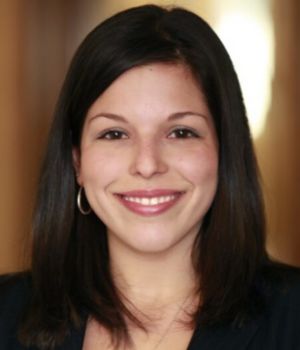
Head of U.S. multi-sector fixed-income team, Schroders Investment Management
Lisa Hornby follows a simple but powerful formula for ensuring the funds she leads excel.
“The price of risk should inform the level of risk you take,” said Hornby, head of the U.S. multi-sector fixed-income team at Schroders Investment Management.
Hornby’s thesis is that credit spreads are cyclical and revert to the mean. A fund must add and subtract risk at the right moment.
“If you follow that valuation formula, you can really enhance your alpha over time,” she said.
With bond yields at their highest levels in 20 years, the sector where Hornby works is one that’s ripe for harvesting performance.
“Fixed income and bonds represent a compelling opportunity,” said Hornby, who has a 3-year-old child and another on the way.
A Rutgers University graduate, Hornby joined Schroders in 2010 and was promoted in 2020 to her current role, where she develops and manages sustainable and thematic funds.
The Hartford Schroders Tax-Aware Bond Fund that Hornby leads more than doubled its assets under management over the last year to nearly $1 billion. That fund and the Hartford Schroders Tax-Aware Bond ETF have garnered five-star ratings based on risk-adjusted returns from Morningstar. Another of Hornby’s funds — the Hartford Schroders Sustainable Core Bond Fund — received four stars.
Hornby integrates environmental, social and governance factors into her team’s investment process. For instance, she has created a bond fund that is “labor aware,” investing in companies that have high retention rates and put a premium on employee benefits and training.
— Mark Schoeff Jr.
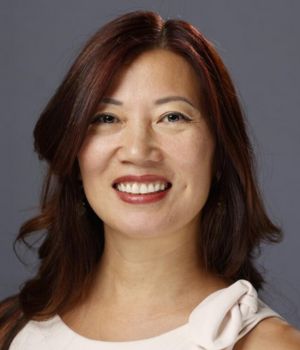
President, Pointwealth Capital Management
Sandra Cho would like to see TARA replace TINA.
TINA — there is no alternative (to stocks) — was popular during previously frothy times in the market. In Cho’s view, perhaps it should be supplanted by TARA — there are reasonable alternatives — or some other catchy investing shorthand.
“Broad diversity now means you have to have something other than stocks and bonds,” said Cho, founder and president of Pointwealth Capital Management. “You have to have alternatives if you’re going to be truly diversified. We need to move on to another acronym.”
Her firm specializes in tax-efficient and retirement account models, and the larger ones devote about 20% of their allocations to alternatives, including structured notes. Half of the structured notes produce income as an enhancement to bonds, while the other half are designed for growth to enhance equities. The products are held for three to five years.
Cho and her staff carefully evaluate clients’ needs and goals through free financial planning before designing their portfolios.
“I feel that’s the only responsible thing to do in order to give them appropriate advice,” she said.
Her investment approach has generated significant referrals and catalyzed the firm’s growth from $80 million in assets under management to $200 million. Cho is in the Chairman’s Club of LPL Financial, the broker-dealer with which her firm is affiliated.
Cho has cultivated a diverse staff. The average age of her employees is 30, and 50% of them are LGBTQ, as she is herself.
“We hired the most capable person for the position, and it just so happened the majority [were] LGBTQ,” she said.
— Mark Schoeff Jr.

Eliseo Prisno, a former Merrill advisor, allegedly collected unapproved fees from Filipino clients by secretly accessing their accounts at two separate brokerages.

The Harford, Connecticut-based RIA is expanding into a new market in the mid-Atlantic region while crossing another billion-dollar milestone.

The Wall Street giant's global wealth head says affluent clients are shifting away from America amid growing fallout from President Donald Trump's hardline politics.

Chief economists, advisors, and chief investment officers share their reactions to the June US employment report.

"This shouldn’t be hard to ban, but neither party will do it. So offensive to the people they serve," RIA titan Peter Mallouk said in a post that referenced Nancy Pelosi's reported stock gains.
Orion's Tom Wilson on delivering coordinated, high-touch service in a world where returns alone no longer set you apart.
Barely a decade old, registered index-linked annuities have quickly surged in popularity, thanks to their unique blend of protection and growth potential—an appealing option for investors looking to chart a steadier course through today's choppy market waters, says Myles Lambert, Brighthouse Financial.
